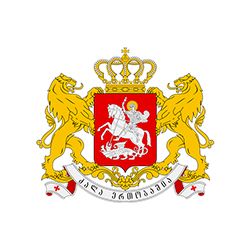
We are grateful to the European Parliament for its latest resolution, supporting Georgia's association process with the European Union.
We particularly appreciate setting out a clear European perspective for Georgia, Moldova and Ukraine with a reference to the article 49 of the Treaty on European Union.
Effective implementation of the Association Agreement is the first priority of our Government. However, it is important to note that the Association Agreement is not the final stage in our progressive relations and there is more we can strive for.
We thank MEPs for their support to the visa liberalisation for Georgia. As noted in the Commission report, Georgia has successfully implemented the Visa Liberalisation Action Plan, in some areas even going beyond the necessary benchmarks. We look forward to the final decision on the Visa Liberalisation in the nearest future which will bring tangible benefits for our people as well as providing more opportunities for business community, especially the SMEs, to benefit from the free trade area with the EU.
We appreciate the unwavering support for Georgia's sovereignty and territorial integrity as demonstrated in numerous EP resolutions and reiterated once again today.
I share the appeal of the European Parliament to all political forces in Georgia to reduce polarization. In my first address as Prime-Minister designate to the Parliament, I made the same appeal to both the opposition and to our ruling coalition and my commitment to this principle will not waver. We, as a ruling power, stand ready to offer every possible opportunity to all parties to avoid political tensions in the country and hope that our opponents will also find ways to cooperate with us on key issues critical to the development of our country and to the furthering of our national interests.
The top priority for our government is to ensure that 2016 parliamentary elections are held in a free, open and transparent environment proving a maturity of our democracy.
As for the democratic reforms undertaken by the Georgian government, the priority has been a large scale reform of the judiciary, including the office of the Chief Prosecutor. The four-phased judiciary reform agenda aimed at depoliticising the High Council of Justice, increasing transparency by opening courtrooms to public and media and introducing lifetime appointment of judges. As for the Prosecutor's Office, concerns raised in the resolution and related to the accountability and selection, have also been addressed.
According to the new Law adopted by the Parliament in autumn 2015, a gender-balanced, 15-member Prosecutorial Council was established to consist of the prosecutors elected by their peers, the representatives of legislature, judiciary and the civil society organizations. In developing the draft law, it should be noted that the Ministry of Justice worked closely with the Venice Commission and took on board 35 out of the 37 recommendations made by this expert body before submitting it to the Parliament.
Similarly, changes have been made in the application of the pre-trial detention bringing relevant legal provisions in compliance with international and European standards. In particular, the reform introduced a frequent, periodic and automatic judicial review of the continued pre-trial detention. The maximum pre-trial period has been limited to nine months with no possibility of extension even if new charges are being pressed.
For the success of the reforms and effective functioning of the justice system, judges should be able to perform their duties without any undue pressure from either the government or opposition. While accepting Constitutional Court's rulings, we note that some of its decisions have been seen as controversial by the public and legal professionals. Spontaneous protests have taken place in front of the Constitutional Court and residences of some of the judges. We, the government, have ensured appropriate enforcement of the law, the safety of judges, as well as the protection of the right to peaceful protest.
Media freedom and pluralism as a main pillar of democracy stands as a priority of our democratic reforms since 2012. Today, the media space in Georgia is as free as in many established democracies. We all, citizens of Georgia, benefit from pluralistic media space which is free from pressure and political interference. In the dispute over the TV station Rustavi2, which initially raised some questions within our society and abroad, we did our best to ensure that without damaging property ownership rights, which are also fundamental to democracy, the judicial process stays independent, transparent and protected from any political interference.
There is more to be done before Georgia becomes a truly European state. In this process, it is important that the European Parliament continues to monitor the progress made by Georgia in the implementation of its association agenda and remains our firm supporter.
Giorgi Kvirikashvili
Prime Minister of Georgia











